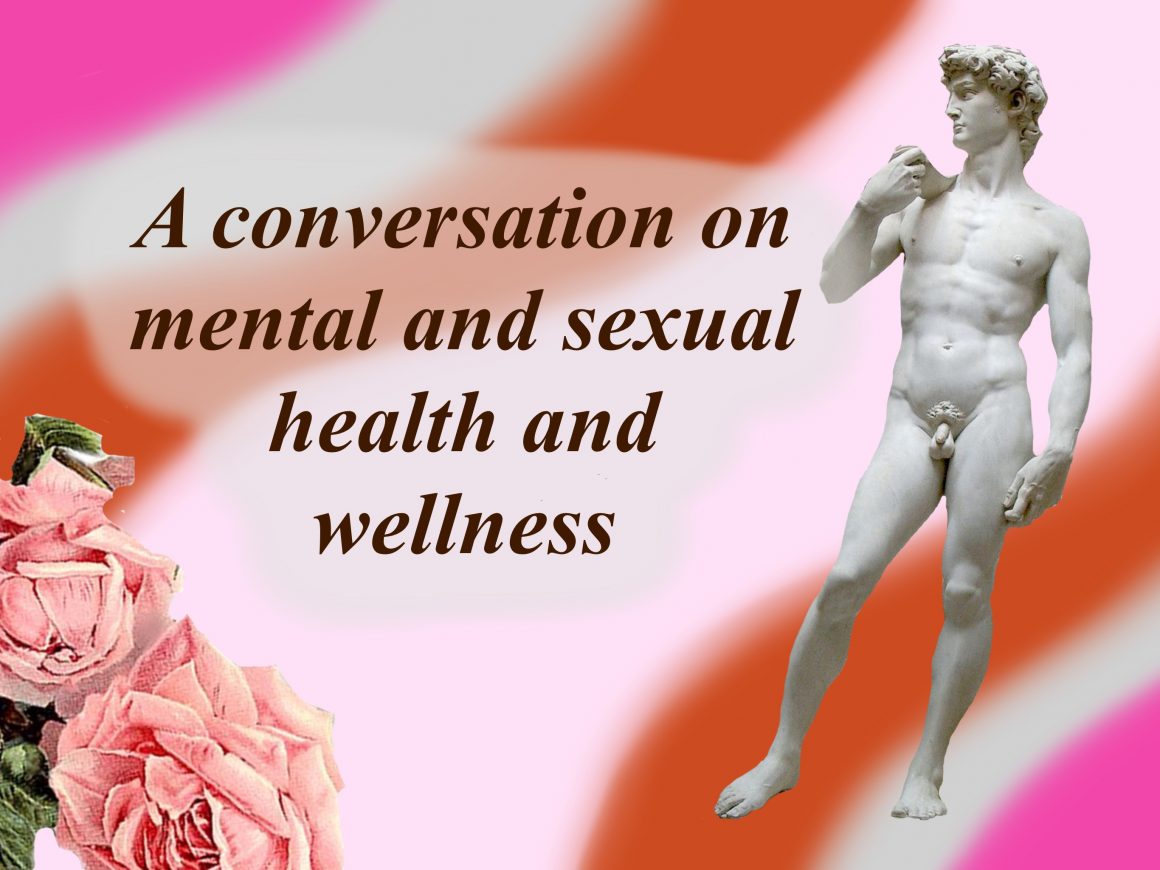
Sex and Gender Week: Your heart, body and mind — a conversation on mental and sexual health and wellness
By Luis Armando Sanchez Diaz, February 14 2022—
On Feb. 7, the Mental Health and Wellness Subcommittee of the Graduate Students’ Association (GSA) at the University of Calgary hosted an event on mental health and sexual wellness as part part of Sex & Gender week.
It was held virtually due to the COVID-19 restrictions and was moderated by John Gabriel Cabayao who oversees the subcommittee as vice-chair advocacy. The event also had the participation of three other panelists of different fields.
Katie O’Brien, a registered social worker, was the first speaker of the event and focused on trauma and its ramifications on the wellbeing of a person. They began by acknowledging that February is Black History Month and highlighted the fact that there were no BIPOC people presenting at the event.
“We should really be centering the voices on leadership of Black, Brown, Indigenous and otherwise racialized sex educators [during Black History Month],” said O’Brien, who also serves as an advisor for sexual and gender-based violence support at University of Calgary’s Wellness Centre.
“We often [mix] sexual violence and sexual health together, sexual violence has nothing to do with sex or desire — it’s all about power,” they added.
“Trauma is actually a very normal reaction to an abnormal event. It’s our brains trying to make sense of something that we don’t expect. Something that is unsafe and that could potentially cause us harm, either physically or emotionally,” O’Brien said. “Trauma is an individual personal response to being overwhelmed by something outside of your control. A large part about trauma is not having the ability to have agency over a situation.”
O’Brien noted that the effects of trauma can affect beyond someone’s mental health as it can have ramifications on other parts of the body such as the gastrointestinal system or cause a disruption in a person’s sleep and eating behaviours.
Moreover, they highlighted the steps a person must take in order to assist someone who has shared their story of trauma with them.
“When someone shares an experience or history of trauma, a positive first response or supportive first response is that this person continues to access the support that they need. Sometimes [that] support is just continuing to talk to you about it,” they said. “I think there are three main pieces to remember when we’re providing responses to trauma. We want to make sure that we’re providing choice. We want to restore control and then, we also want to offer some information.”
The second intervention was by Eddy Robinson who is a community programs and outreach team lead at Skipping Stone Foundation located in Calgary. They explained part of the work that they do and dove into how gender and mental health intersect.
“The work that we do is connecting gender diverse folks with appropriate care and knowing who the mental health professionals or the peer support professionals are,” they said.
Robinson stated that there are various services available that they provide for people that experience gender dysphoria.
“We know that it’s not only hard to find someone who is gender affirming, but it’s difficult to find somebody who knows how to speak about gender dysphoria and knows how that impacts mental health,” said Robinson.
“It is more complex than just applying general mental health tools to gender. That causes a further barrier for folks who are already marginalized. And that’s important to acknowledge when we’re doing the work that it is about finding specialists or providing training that is more in-depth to people so that [they] can access information to provide gender affirming care,” they finalized.
Moreover, the event had the participation of Dr. Caley Shukalek who is a clinical assistant professor at the Cumming School of Medicine as well as site lead for the department of medicine at the Foothills Medical Centre. Shukalek talked about his experience as both an M.D and as patient on Queer issues within healthcare services.
He highlighted and stressed the objectives and importance of an organization such as Freddie, which “was created to provide healthcare for a community that has traditionally been overlooked, stigmatized and marginalized. Our clinicians provide care with empathy, compassion and inclusion in place of judgement,” according to the organization’s webpage.
“Everyone we’ve been serving in Freddie, we’ve heard about [their] needs in mental health, and I can’t agree more that the overlap of experience and social standing and intersectionality contributes so much to health and mental health. We just need to continue to work in those fields and grow services that are affirming and accessible,” Shukalek said.
Shukalek emphasized on the need to create more awareness of having more affirming providers and access to mental health services for Queer individuals in a non-judgemental way.
“We have many patients with Freddie that say [they] can talk about these things with [their] family doctor. I put forward to the College of Physicians and Surgeons that you can search by language, but why can’t we search by [affirming and accessible needs]. About providers who have experience and willingness to work with anyone and everyone in our community. And honestly just anyone and everyone in a nonjudgmental fashion,” he concluded.
Participants had the chance to ask questions and engage with the panelists throughout the event through the chat feature on the webinar page.
Cabayao finalized the event by thanking the participants and panelists for their participation and interventions at the event.
Visit Freddie webpage to learn more about the organization. Access the Wellness Services page to learn more about the U of C’s services.
